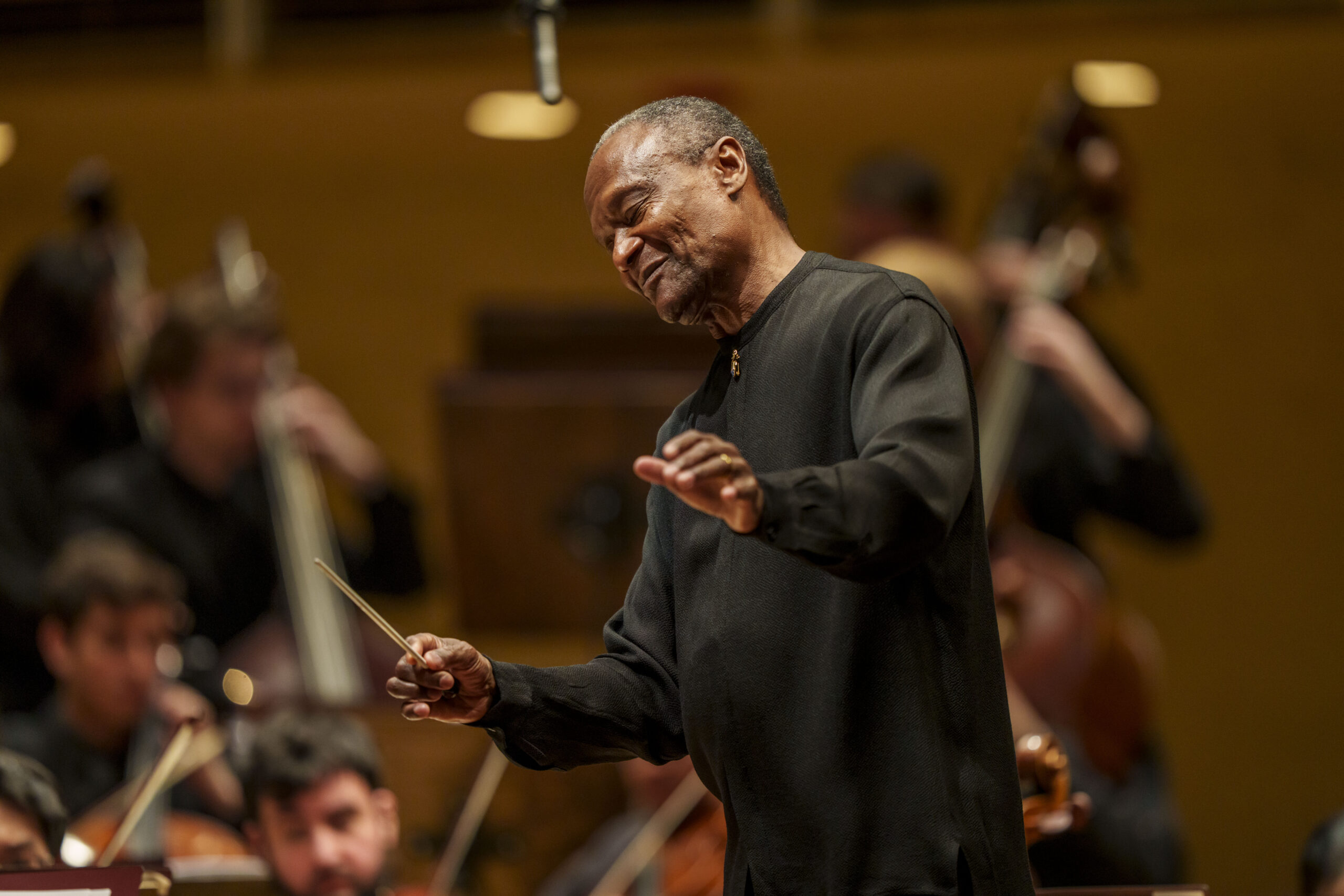
With Thomas Wilkins taking the podium, the Civic Orchestra of Chicago gave a lovely performance at Symphony Center on Monday evening. Being the professional training ensemble for the Chicago Symphony Orchestra, the Civic bequeaths to the CSO and other major orchestras emerging talent ready to step in when the need arises. Although there were some missteps, Monday’s outing showed off a level of maturity and sophistication for which any orchestra would be proud.
The program featured symphonies by two composers with ties to Chicago. The first was Symphony No. 3 in c-minor by Florence Price, an African American who composed and lived in Chicago in the middle of the 20th century. After intermission, we heard Czech composer Antonín Dvořák’s Symphony No. 8 in G-Major, which Dvořák himself conducted in Chicago at the Columbian Exposition in 1893.

Given its excellence, it is hard to believe that Price’s music was ignored for so long. In 2009 many of her scores were discovered in a trunk in the attic of her abandoned summer home 70 miles south of Chicago. That spurred on a well-deserved renaissance in her music, and I go out of my way to hear it.
Discussing her Third Symphony in a letter, Price said “it is intended to be Negroid in character and expression.” To that end, it incorporates tonal and rhythmic practices common to African American culture during and after slavery. The slower second movement uses an African American spiritual theme, and the dance-like third movement is a pop masterpiece using JUBA, syncopated rhythms.
This symphony requires a very large orchestra, allowing the Civic to show off it’s incredible depth of talent. The opening movement starts with a brass chorale that soon moves to the woodwinds and then to the strings. Throughout the movement, Price keeps the orchestra’s sections similarly segregated, with each taking turns and very little intermingling. Supporting everything Monday night was a six-person percussion section, celesta, and harp.
There were plenty of highlights on Monday night, such as when the muted basses supported solos from Concertmaster Ran Huo and Principal cellist Sam Day. It was also fascinating to hear Marissa Kerbel’s celesta intermingling with the woodwinds. Throughout the evening the phrasing was generally precise, notwithstanding a couple of ragged entries.
Baton in his right hand, Thomas Wilkins has a very restrained style, with his hands only rarely going over his head. He carefully brought the different sections into the mix and was especially effective in the crescendo buildups leading to climaxes.
After intermission, Wilkins briefly addressed the audience about how Dvořák’s Eight Symphony is a happy work. He quickly jumped right into the quiet introduction sounded by the cellos, backed by bassoons and other lower pitched instruments. Then, at the same tempo, the full orchestra comes roaring through. Wilkins made it very exciting, but the trumpets and trombones were a bit too loud at first. In approaching the end of the movement, Wilkins demonstrated his effectiveness in buildups to climaxes.
In his comments, Wilkins noted that the slow second movement can be a bit sad and dramatic. While true, I have always found it uplifting in total, and that’s how I heard it Monday night. This movement gives the woodwinds plenty of opportunities to interact amongst themselves and the brass. The strings largely played back-up. Wilkins led the solos and instrument intermingling to great effect.
Starting once again with quiet cellos, the finale is exciting and merry. The performance was generally good. Unfortunately, during an instrument switch, there was a jarring moment of intonation problems in the woodwinds. It quickly resolved itself but it left its mark.
Tonight at Symphony Center violinist Anne-Sophie Mutter, pianist Yefim Bronfman, and cellist Pablo Ferrández team up to perform two amazing works: Beethoven’s Archduke Trio and Tchaikovsky's Trio in a-minor. Wednesday, May 7, 2025, 7:30. For more information, click here.
On Thursday and Friday Jaap van Zweden leads the CSO in a performance of Mahler's Sixth Symphony before heading out to Amsterdam to perform it at the third Mahler Festival. Thursday May 8, 7:30pm. Friday May 9, 1:30pm. For more information click here.
Support arts and culture journalism today. This work doesn't happen without your support. Contribute today and ensure we can continue to share the latest reviews, essays, and previews of the most anticipated arts and culture events across the city.
